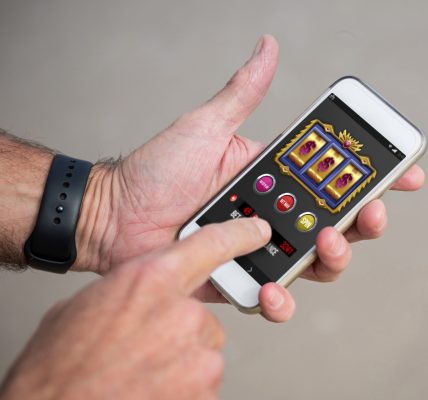New Research in Using Psychedelics to Break Gambling Addiction

Something interesting is going on across the pond. The Centre for Psychedelic Research at the Imperial College London has worked for over a decade to conduct research into the use of psilocybin in mental healthcare.
The Centre is led by Dr. David Nutt, a psychiatrist and director of the Neuropsychopharmacology Unit in the Division of Brain Sciences at Imperial College London. The clinical director for the Centre is Dr. David Erritzoe, a psychiatrist and a researcher focusing on brain imaging techniques. For the past 15 years, he has worked with Dr. Nutt on imaging research in the neurobiology of addictions and major depression at Imperial College.
In 2021, they started working with Dr. Rayyan Zafar on a series of groundbreaking studies on alcoholism, gambling disorders, depression, anorexia, and epilepsy. Dr. Zafar is a specialist in neuroimaging and psychedelics. They looked at the impact of cannabis compounds and psilocybin. Let’s just say they found something.
According to an investor newsletter, The Dales Report, the Centre is moving from research to commercialization of its work on gambling addiction. Analyst Bill McNarland writes:
Traditionally, their findings inspired industry scale-up, but they are now contemplating retaining their results for more direct commercial pursuits, potentially through partnerships or creating spinout companies. This change in strategy aims to better protect intellectual property and guide the translation of research into viable therapies.
Dr. Zafar’s research involved an examination of functional MRIs. It showed, “In gamblers, specific brain regions associated with reward processing were more active when exposed to gambling-related videos compared to healthy controls.” The research now moves to trials to determine the impact of psilocybin on the fMRIs.
Psychedelic therapy for addictions and other disorders, such as Post-Traumatic Stress Disorder, or PTSD, is thought to work by causing a sudden break in the way the patient sees themselves and views the world. There is a lot of anecdotal evidence but scant real evidence that psychedelics work without a change in behavior.
The Centre’s new research into the use of psilocybin in the treatment of gambling addiction is underwritten by a U.K. Research and Innovation Grant and includes a collaboration with Invicro involving a “new high-powered research-grade MRI system to examine brain effects in unprecedented detail.”
There’s a lot of science happening at the intersection of psychedelics and addiction right now, and we’ll do our best to bring you the latest right here on AddictionNews.
Written by Steve O’Keefe. First published January 22, 2024.
Sources:
“Psychedelic therapy in the treatment of addiction: the past, present and future,” Frontiers in Psychiatry, June 2023.
Centre for Psychedelic Research, Imperial College London, retrieved January 2024.
“Imperial College’s Potential Shift: From Research to Commercializing Gambling Addiction Treatment,” The Dales Report, January 15, 2024.
Image Copyright: Isriya Paireepairit, used under CreativeCommons License 2.0.




